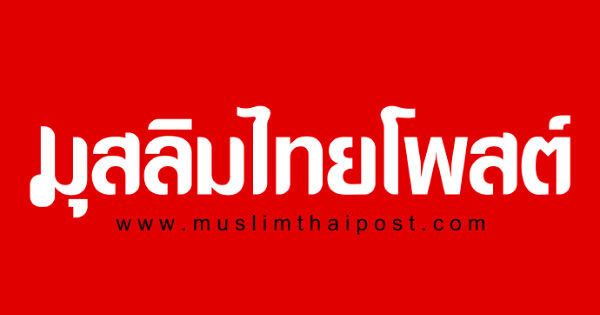ปัจจัยคัดสรรที่มีความสัมพันธ์กับพฤติกรรมสนับสนุนการทํากิจกรรมการบริหารคุณภาพแบบเบ็ดเสร็จ (TQM) : กรณีศึกษา บริษัทอุตสาหกรรมพลาสติก
ปัจจัยคัดสรรที่มีความสัมพันธ์กับพฤติกรรมสนับสนุนการทํากิจกรรมการบริหารคุณภาพแบบเบ็ดเสร็จ (TQM) : กรณีศึกษา บริษัทอุตสาหกรรมพลาสติก
Selected Factors Relation to Supporting Behavior in Total Quality Management (TQM) Implementation : A Case Study of Plastic Manufacturing Companies.
2548
กฤตศร มังกรกาญจน
บทคัดย่อ
การวิจัยนี้มีวัตถุประสงค์เพื่อศึกษาความสัมพันธ์ระหว่าง ตัวแปรเพศ อายุ อายุงาน ระดับการศึกษา ระดับรายได้ ความรู้ความเข้าใจ TQM ปัจจัยทางสังคม ความมั่นคงปลอดภัย ผลประโยชน์ อํานาจ การมีส่วนร่วม ความขัดแย้งระหว่างสภาพเดิม และสภาพที่เปลี่ยนแปลงไป กับ ตัวแปรพฤติกรรมสนับสนุนการทํา TQM ในองค์การพนักงาน
พนักงานบริษัทพลาสติกส์จํานวน 256 คน ได้ถูกสุ่มมาเป็นกลุ่มตัวอย่าง ใช้แบบวัดและ แบบสอบถามในการเก็บข้อมูล ใช้วิธีการวิเคราะห์สหสัมพันธ์ปกติในการวิเคราะห์ข้อมูลและใช้วิธีการ วิเคราะห์สหสัมพันธ์ถดถอยพหุ ในการสร้างสมการทํานายตัวแปร ผลการวิจัยได้ข้อสรุปดังนี้
1. พนักงานส่วนใหญ่มีพฤติกรรมสนับสนุนการทํา TQM ในองค์การในระดับปานกลางถึง มาก (ร้อยละ 41.9) และ ระดับมากถึงมากที่สุด (ร้อยละ 47.2)
2. ปัจจัยส่วนบุคคล ด้าน เพศ อายุ อายุงาน ไม่มีความสัมพันธ์กับพฤติกรรมสนับสนุน การทํา TQM ในองค์การของบุคคล แต่ปัจจัยส่วนบุคคลด้านระดับการศึกษา และ ระดับรายได้มี ความสัมพันธ์ทางบวกกับพฤติกรรมสนับสนุนการทํา TQM ในองค์กรของบุคคล
3. ตัวแปรปัจจัยทางสังคม ความมั่นคงปลอดภัย ผลประโยชน์ ความรู้ความเข้าใจเรื่อง TQM อํานาจ และ การมีส่วนร่วม มีความสัมพันธ์ทางบวกกับพฤติกรรมสนับสนุนการทํา TQM ใน องค์กรของบุคคล และ ความขัดแย้งระหว่างสภาพเดิมและสภาพที่เปลี่ยนแปลงไปมีความสัมพันธ์ทาง ลบ กับพฤติกรรมการทํา TQM ในองค์การของบุคคล
4. การวิจัยนี้ได้สมการทํานายตัวแปรที่ประกอบด้วยตัวแปรต้น 4 ตัวได้แก่ อํานาจ การมี ส่วนร่วม ระดับการศึกษา และ ความขัดแย้งระหว่างสภาพเดิมและสภาพที่เปลี่ยนแปลงไป โดยมีค่า อํานาจการทํานายพฤติกรรมสนับสนุนการทํา TQM ในองค์การของบุคคลได้ร้อยละ 42.5
Abstract
The primary objective of this research was to study the selected factors related to TQM implementation supported behavior in the organization. The selected factors included sex, age, working age, education level, income, TQM knowledge and understanding, social factor, security, profit, power, participation and conflict between the previous and changed situation.
Two hundred and fifty six workers in plastic companies were randomly selected as the samples. Tests and questionnaires were used to collected data. Multiple Regression Correlation and Divaricates Correlation were used for data analysis. The results were found as following details:
1. Most of the workers supported TQM Implementation in the organizations between normal to high level (41.9%) and between high to highest level (47.2%)
2. Sex, age, working age were not related to TQM Implementation supported behavior in the organization but income and education level were positively related to the TQM supported behavior.
3. Variables included social factors. Security, profit, TQM knowledge and understandings, power and participation showed positive relationship but conflict between the previous and changed situation showed negative relationship to TQM supported behavior.
4. Variables in the predictive equation included power, participation, education level and conflict between previous and changed situation. Coefficient of determination (R Square) of this predictive equation is 42.5
ที่มา : สำนักงานคณะกรรมการข้าราชการพลเรือน (ก.พ.)



